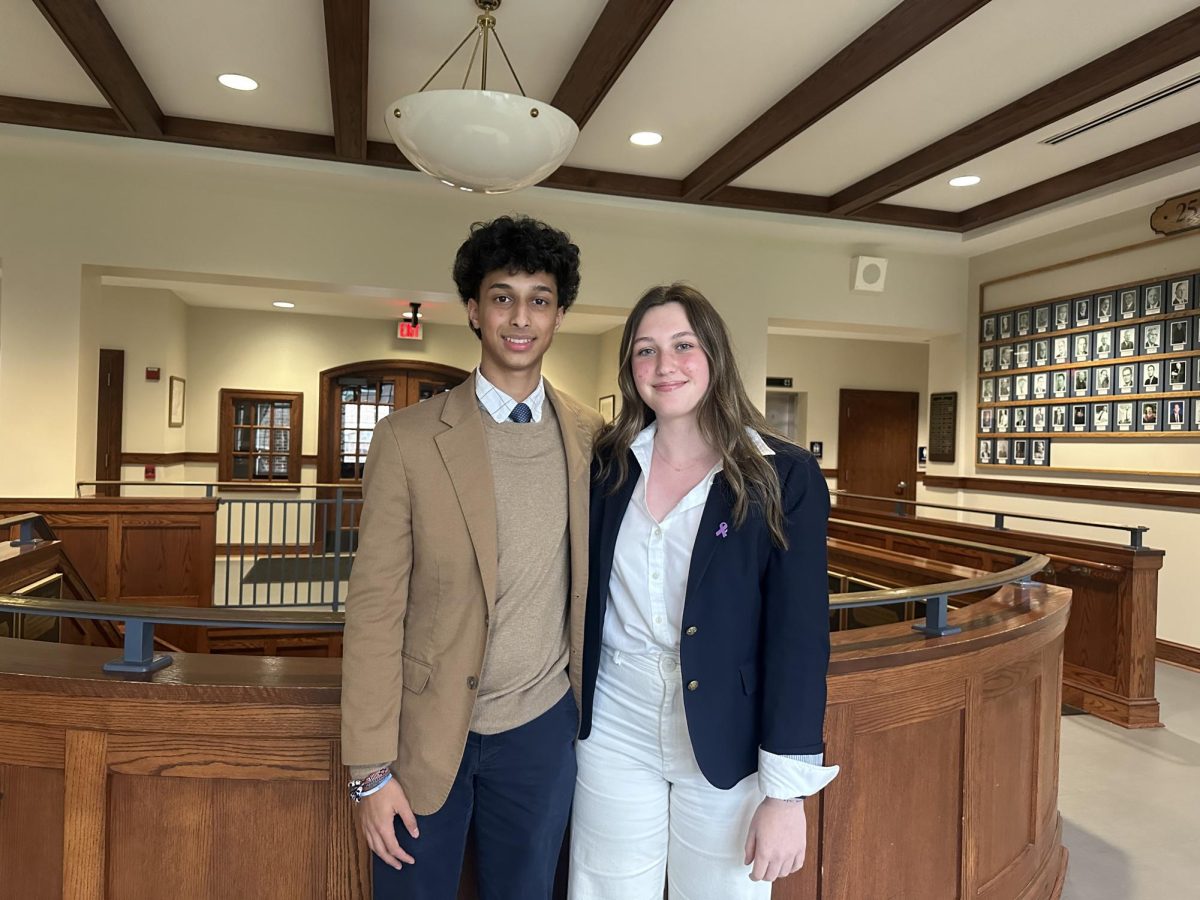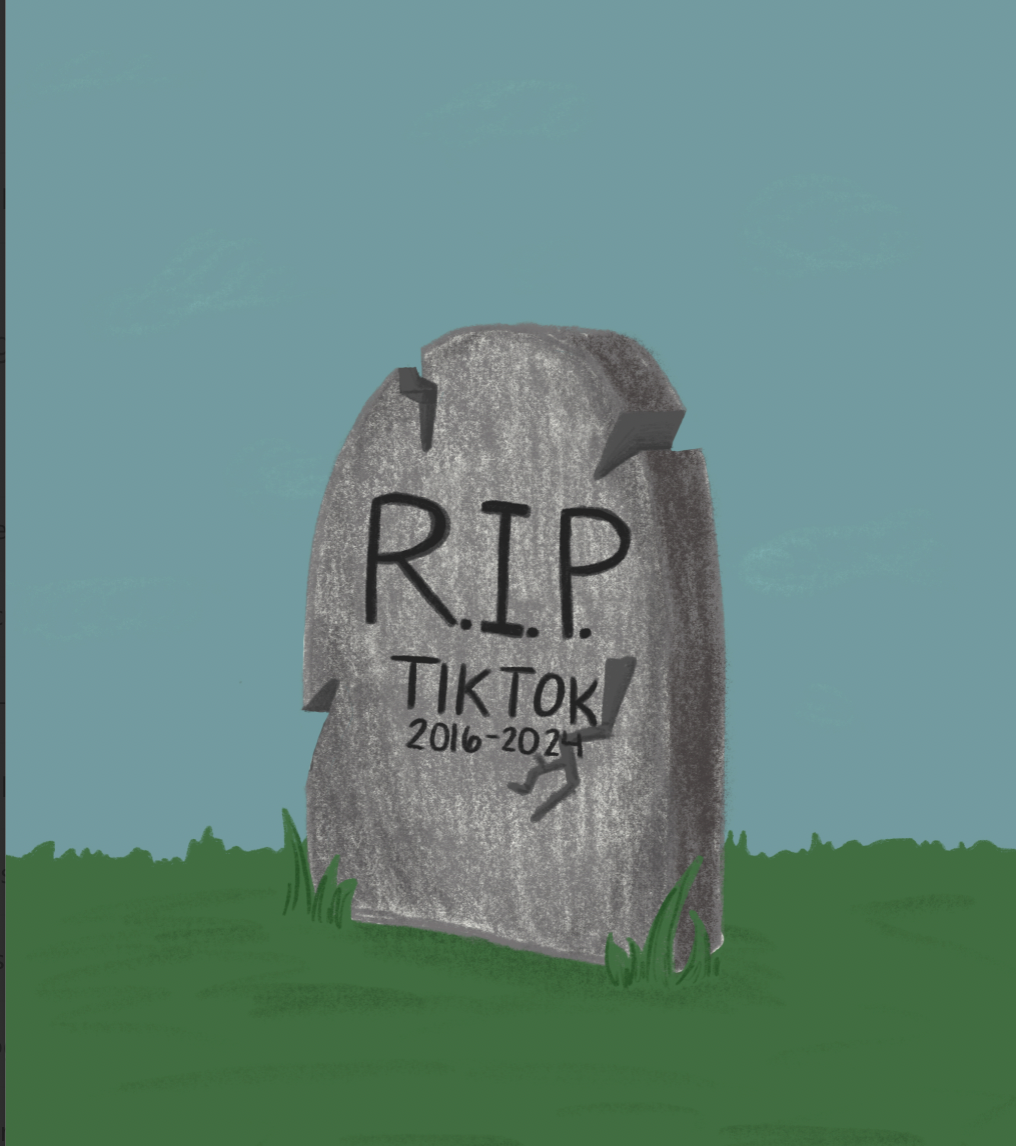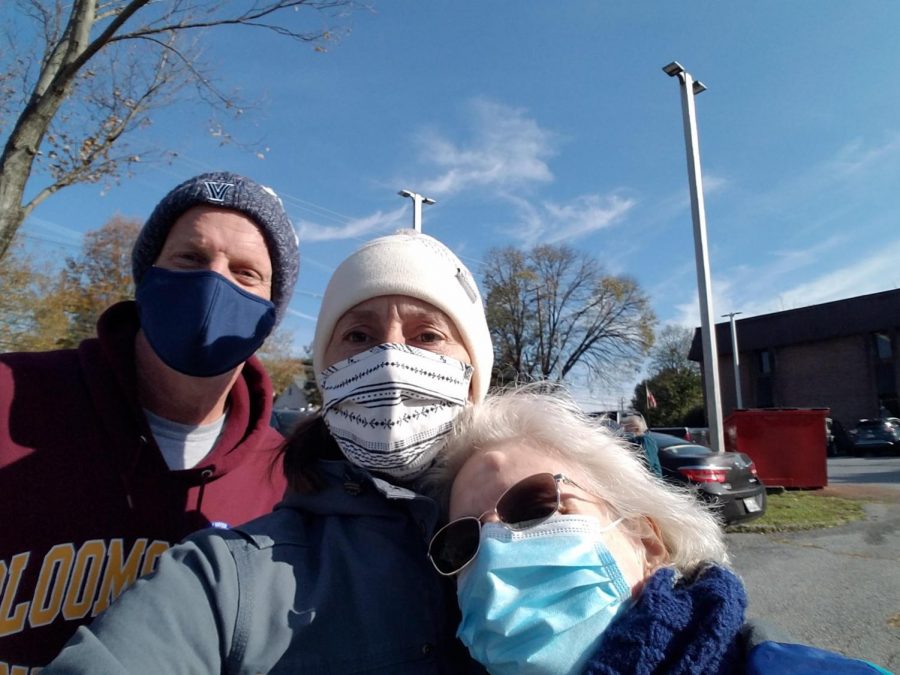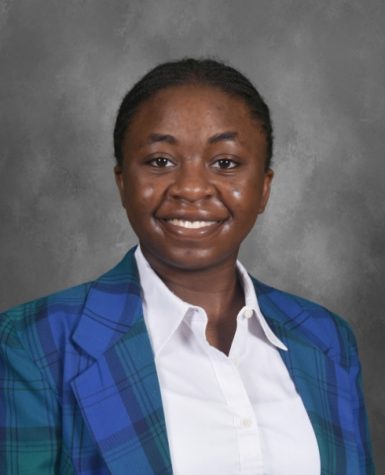Hill witnesses the 2020 presidential election through the generations
Pictured left to right: Mark Agnew, Amy Agnew, and Kathryn Malone stand in line to vote for the 2020 Presidential Election. Photo Courtesy of Amy Agnew
The people of the United States of America have been voting for a very long time – over 230 years to be exact. Throughout that time span, the nature of our elections has fluctuated and changed as new ages presented new issues. The Hill School is fortunate enough to have people who’ve lived long enough to witness these changes in addition to the many young people able to vote for the very first time two very different generations that view the current 2020 presidential election and its aftermath just as differently.
Archivist Librarian Louis Jeffries believes that not only this election, but all of 2020, will forever be remembered as a cornerstone of American history.
“I think that in 20 years or so, when people look back on 2020, this is going to be called one of those years that is so revolutionary that the world will never be the same afterward as it was before,” Jeffries said.
Jeffries, born in 1947, knows a thing or two about contested presidential elections. He recalls 1968 and the election between Richard Nixon and Hubert Humphrey. During 1968, both Bobby Kennedy and Martin Luther King Jr. were assassinated, and racial riots protests dominated many cities. Jeffries turned 21 that year.
Jeffries also recalls the 2000 election between Al Gore and George W. Bush, an election that, like this year, was prolonged because of ballot malfunctions in Florida. Then, the Supreme Court said in a 5-4 decision that the examination of the ballots in Florida had to stop. All the five were Republicans, who favored Bush who was a member of the GOP as well.
“If this goes to the Supreme Court today, and now the Supreme Court is 6-3 Republican selected justices I can very easily see something going in the favor of Trump in a 5-4 or 6-3 majority. That’s why I don’t think this is over yet,” Jeffries said.
“The country is very much divided,” Jeffries said. “I personally do not see it coming back together anytime soon. If Joe Biden does become president, I think he’s going to have a very hard time. I do not think that he can unite the country by the force of his personality or charisma which isn’t Ronald Reagan’s or John F. Kennedy’s charisma.”
Bill Yinger, Chair of the Science Department, also believes that division has grown. Yinger, however, still holds on to the hope of future unity, saying, “Since I’ve been able to vote in my adult life I’ve seen a greater polarization. It takes somebody to try to bridge those gaps and I’d like to believe that those gaps are bridgeable still.”
Yinger mentions something that many students may not be able to understand: his children.
“There’s got to be a common ground to give a better life to your children. If that’s the only common ground: find me somebody that doesn’t love their children,” Yinger said.
Rev. Anne Confer Martens, Warner Associate Chaplain, remembers the 2000 Presidential Election as a young student at Hill.
“I was 16 so I couldn’t vote,” Confer Martens said. “But, it was the first election that I felt I was really aware of because I was in high school and I was in class and I read the news, so I was a more aware person.
A major difference, Confer Martens notes, between 2000 and 2020 is the level of connectedness. Then, the bounds of technology were much more limited, creating a much different atmosphere than what many students are used to today.
“In 2000 it was so different because we had instant messengers but there wasn’t this ability to constantly have access to each other,” Confer Martens said. “The internet and phones shut off at lights out and no one had a cell phone. I mean, I got my first cellphone when I went to college, just for perspective.”
Confer Martens believes that this hyper-connectedness has led to increased tension online and in person, especially politically.
“I can certainly remember getting into political debates with my friends and knowing we had different views, but I don’t think that students today have good examples of how to talk to someone who they disagree with,” Confer Martens said. “We had the ability to turn it off and step back from it whereas, with constant access with each other today, it makes it easier to kind of demonize people you disagree with because we’re doing it in a more impersonal way.”
However, in the eyes of Dami Odubona ’23, today’s increased digital communication and connection makes informing oneself on national matters much easier.
“Leading up to election day, it was in my head the idea that we can have Trump for another four years or a completely new president,” Odubona said. “I kind of distracted myself to not let my anxiety get to me, but when the day came, I was really into it. That night when they still didn’t finish counting the votes, I couldn’t even sleep.”
Anders Mortenson ’24 has also been paying close attention even though he cannot vote.
“It’s interesting to observe what’s going on with our country,” Mortenson said. “Obviously we can’t vote but that doesn’t mean that we as a student body, especially 3rd formers, can’t have thoughts and opinions about these things.”
Odubona shares this thought with Mortenson, saying, “I think younger people should definitely educate themselves because sooner or later they’re going to have to vote and figure out who they want to represent them. Especially for us underformers, we need to figure things out earlier so when the time comes, we know what to do.”
“If one thing comes out of this election, it’ll be that it’s become cool to vote,” Yinger said.
This reigns true as voter turnout this election has reached a historic, all-time high in the United States, especially among youth voters.
“It was very exciting,” Lauren Yingling ’21 said of her first time voting. “Although it was freezing cold out, it was definitely worth the wait. I saw a lot of Hill faculty members who were waving and congratulating me and my friends. It felt like my vote actually mattered. I think a lot of young people think that their vote doesn’t matter since they’re one out of so many. But, since there are so many young people, everyone matters in the sense of the whole, so I think we should recognize the gravity of our votes.”
“This election is being decided by very small margins. I think it is a good reminder that we do and can have an impact,” Confer Martens said. “Of course it’s a cynical process because it’s a human process. We’re not trying to marry the person. It’s an imperfect process, but that doesn’t mean we should just dismiss it.”
Whether history repeats itself or not, one thing is for sure: generations of voters have a lot to learn from each other.




























